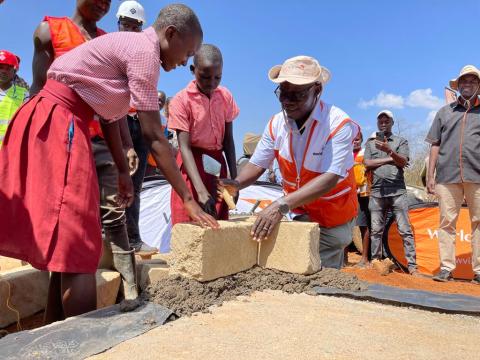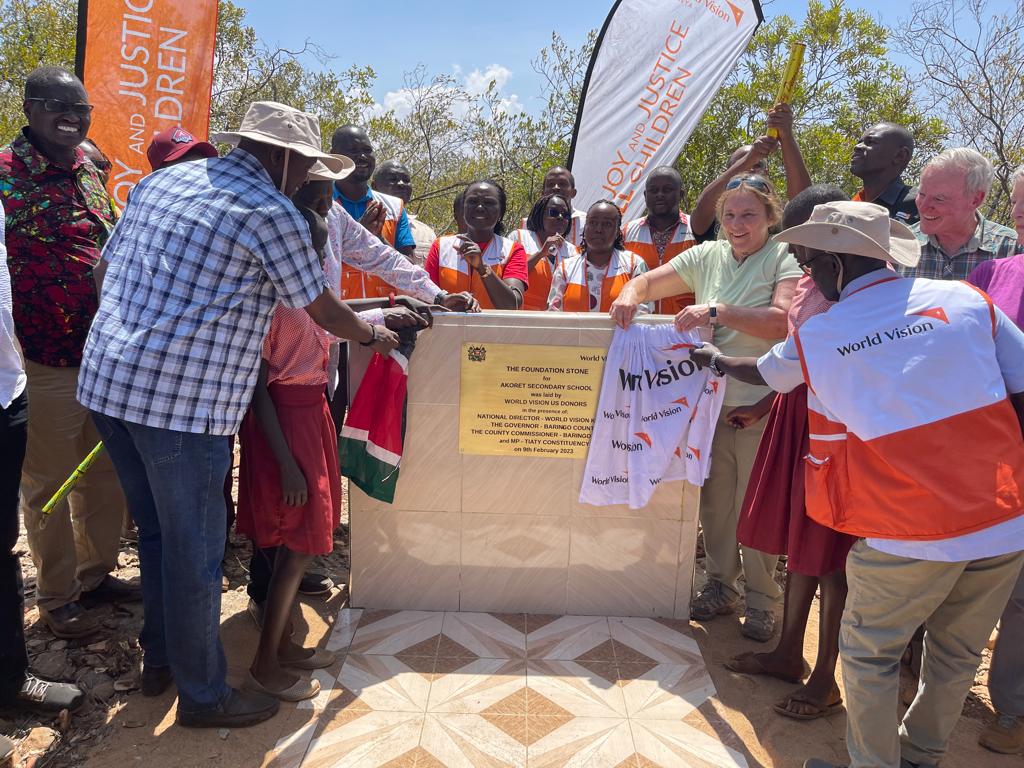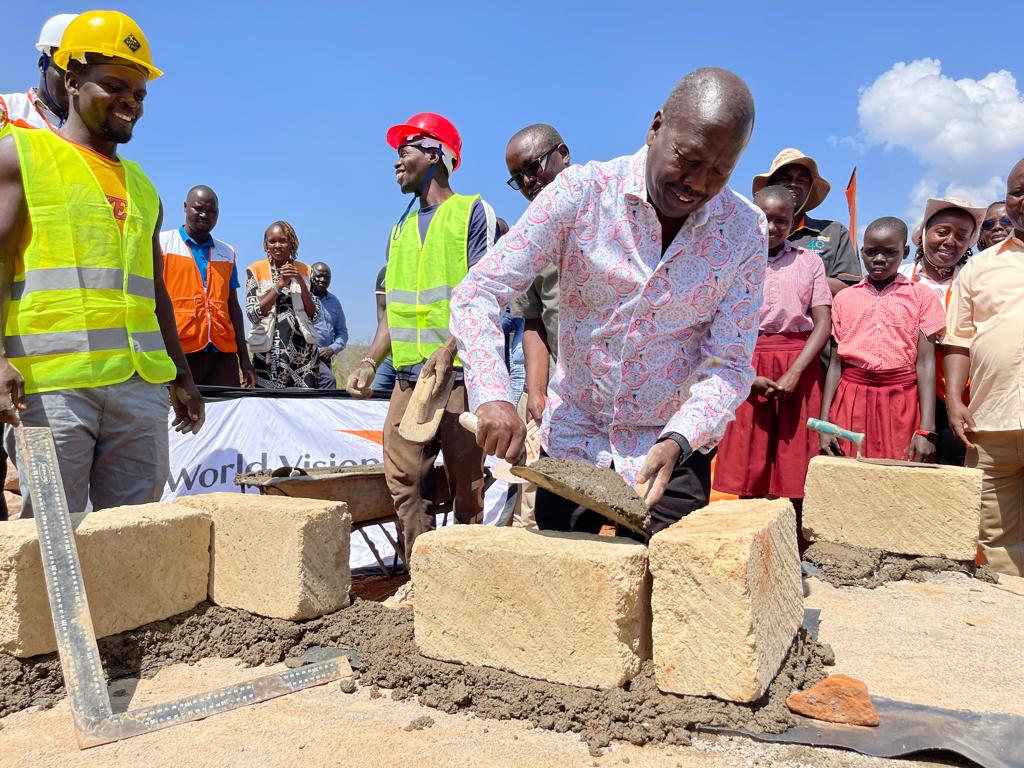World Vision embarks on multi-million project to boost access to education in Baringo County

By Ivy Muigai, Communications Specialist, World Vision Kenya
In a bid to enhance access to education for vulnerable children, World Vision Kenya has invested KSh136 million (USD 1 Million)) in the construction of a secondary school in Akoret, situated in Tiaty West, Baringo County. This is the first secondary school in Akoret's Tirioko ward.
The school project, which is being implemented through the organisation’s Kenya Big Dream Programme funded by Margo Day, will increase access to affordable education, reduce school dropouts and create a rescue centre for the survivors of Female Genital Mutilation (FGM), as well as reduce child marriages that have been rife in the region.
Gilbert Kamanga the National Director for World Vision Kenya, appreciated the County Government of Baringo and the community for creating an enabling environment for the well-being of children.
"As World Vision, we celebrate the community for allowing us to partner with them in enhancing the lives of children through education. I also appreciate the Governor and his government for collaborating with us on this front and providing a space for us to put up this school,” he said.

He added that the investment will improve community literacy levels, create a safe learning environment for girls and increase accessibility to higher education for both boys and girls within the Tiaty community due to the reduced cost of acquiring secondary school education.
The rising cases of school dropouts has been attributed to harmful cultural practices such as FGM and forced child marriages. Additionally, the movement of families in search of water and pasture for their livestock, coupled with insecurity caused by cattle rustling, has increased dropouts.
Speaking at the ground-breaking ceremony for the school, Baringo County Governor Benjamin Cheboi, expressed his appreciation to World Vision and its donors for the investment that will allow beneficiaries an equal opportunity to access quality education.
"We recognise and appreciate the sacrifice in setting up a facility to enable our children to acquire knowledge. I believe that through this initiative, within the next five or ten years, the area will be a beehive of activity that will benefit the community, " he said.

The Governor also promised to sink a borehole within the next six months to provide water as part of the county government’s contribution to the project. The borehole will also go a long way in providing the much-needed water to the people of Kamurio sub-location where the school will be located.
The project will be implemented in two phases covering two years, and will involve the construction of classrooms, science laboratories, a library, two 58-bed dormitories, a dining hall with a Kitchen, an administration block, among other resources. In addition, it will equip the school with the appropriate equipment.
The national government will support the initiative by registering the school, establishing a Board of Management to head the project, providing technical support for quality assurance and posting teachers to the school through the Ministry of Education, among other deliverables.
To ensure sustainability, the community will mobilise families to send their children to the school and contribute towards the maintenance costs of the project.